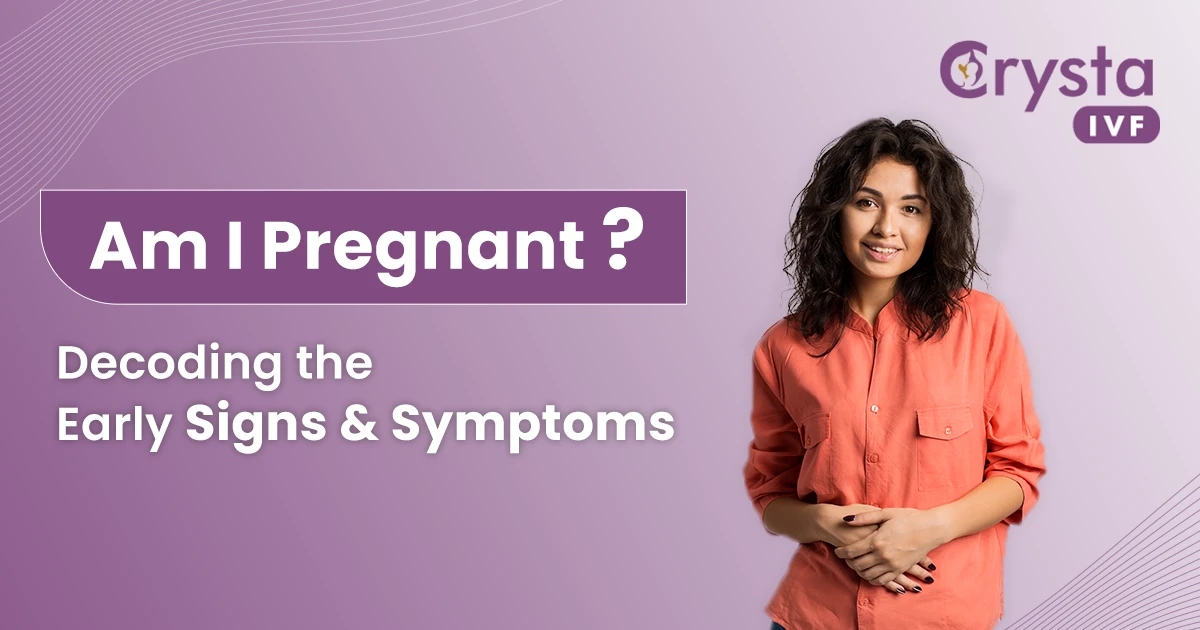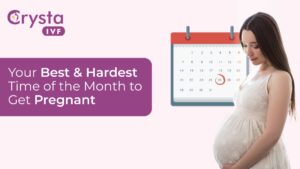Not sure about your pregnancy? Almost every woman is not sure about their first pregnancy and the early symptoms. But many signs indicate you are pregnant. The first and most important thing is to listen to your body’s signals. The early signs of pregnancy are missed periods, breast tenderness, frequent urination, and nausea. However, in later stages, the pregnancy brings different changes and challenges, everything from backaches and headaches to leg cramps to varicose veins and itchiness. Digestive issues like constipation and hemorrhoids, vaginal changes, and even mood swings or depression. Even though symptoms are common, every woman and their pregnancy symptoms are different. Don’t hesitate to reach out to your doctor with any questions or for help. The pregnancy journey is an unforgettable experience, so buckle up and embrace the changes. In this blog, you will understand the symptoms of early pregnancy week by week.
What are the Common Early Pregnancy Symptoms (Week By Week)?
Are you experiencing unusual changes in your body like breast tenderness, vomiting, and nausea and wondering if they could be signs of pregnancy? Here are some of the most common early signs of pregnancy you might notice during your first, second, and third trimesters.
Signs of Pregnancy in the First Trimester (12 Weeks)
- Missed period- Missing periods are the first signs that indicate pregnancy. However, some women might experience light bleeding during their expected period.
- Fatigue– Always feeling tired? During early pregnancy, the hormone Progesterone increases and causes drowsiness and fatigue.
- Nausea and Vomiting (Morning Sickness)- This is due to hormonal fluctuations and increased sensitivity to certain foods and smells. Drink more water and eat in small portions to manage this unpleasant experience.
- Tender/Sore Breasts- Hormonal changes prepare your breasts for milk production, making them tender, swollen, and tingly.
- Frequent Urination- The growing uterus puts pressure on your bladder, which increases the urge to urinate.
- Mood Swings- During the initial days of pregnancy, you might feel consistent mood swings like irritability or even anxiety due to hormone changes.
- Sudden Food Cravings- Suddenly craving pickles and ice cream? Food cravings are common during pregnancy.
Also Read: When Should You Take A Pregnancy Test?
Early Signs of Pregnancy in the Second Trimester (13 to 27 weeks)
- Heartburn and Indigestion- The valve between the stomach and esophagus with a growing uterus pressing your stomach can cause heartburn and indigestion. Try to eat in smaller portions and avoid spicy and acidic foods.
- Backaches- As the baby grows, your center of gravity shifts, putting strain on your back muscles. Try to maintain good posture by doing regular stretching exercises.
- Leg Cramps- The sharp pain in the calves or feet often occurs at night during pregnancy. Regular stretches and supportive shoes can ease these cramps.
- Round Ligament Pain- This sharp, stabbing pain on the sides of your lower abdomen is caused by stretching the round ligaments that support your growing uterus. Applying warm compresses and changing positions while sleeping can help relieve uneasiness.
- Increased Energy- Many women experience more activity and energy during the second trimester.
- Skin Changes- Hormonal fluctuations can cause skin pigmentation, skin darkening of the nipples and linea nigra.
Signs of Pregnancy in the Third Trimester (28 to 40 weeks)
- Shortness of Breath- During pregnancy, the progesterone levels increase your lung capacity, which causes you to take more oxygen. Also, as the baby grows, the uterus pushes the diaphragm, the baby grows, and the uterus pushes up on your diaphragm, limiting lung space and causing shortness of breath. Take small, shallow breaths to avoid discomfort.
- Swelling (Edema)- Fluid retention, combined with the growing uterus pressing on veins, can lead to swelling in your ankles, feet, hands, and even face. Elevating your legs, wearing loose-fitting clothes, and staying hydrated can help manage this.
- Braxton Hicks Contractions- Don’t panic! These practice contractions tighten and then relax your uterus, preparing it for labor.
- Trouble Sleeping- Sleeping in a comfortable position is challenging during the third trimester. Pregnancy pillows and sleeping on your side before bed can help improve sleep quality.
Also Read: Best Sleeping Positions During Pregnancy
Other Symptoms of Early Pregnancy
Besides the classic early pregnancy symptoms, here are some other slightly less common signs that your body might be signaling a little one is growing inside:
- Bloating and Constipation
- Varicose Veins
- Headaches
- Dizziness
- Changes in Vaginal Discharge
- Vaginal bleeding
- Severe stomach pain
- High blood pressure
- Blurred Vision
- Dizziness or fainting
- Swelling of face
Also Read: What is the hCG Hormone, and how is it related to pregnancy?
Pregnancy Pains and Gains: When to Seek Help
The pregnancy journey is different for everyone. The symptoms mentioned above are common signs of early pregnancy and may vary from woman to woman. However, communicate openly with your doctor if you experience any concerns or unusual symptoms. Don’t hesitate to ask questions, share concerns, and seek guidance. Moreover, for couples, achieving pregnancy naturally is challenging, but with advancements in medical technology and methods like IVF, they have hope. IVF is the best option for couples facing infertility for a long time due to various reasons like blocked fallopian tubes, male factor infertility, genetic concerns, and more. Whether through a natural pregnancy or IVF, embrace the changes, celebrate the milestones, prioritize self-care, and prepare to welcome your precious bundle of joy!
Read more Blogs:
- How to Avoid Miscarriage After IVF Treatment
- How to Control Thyroid during Pregnancy?
- Know All About IVF Pregnancy, Birth, and Baby
- Is IVF Pregnancy Equal to Normal Pregnancy?
- Normal Delivery or C- Section: What is the Best Option?




